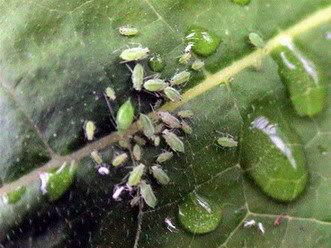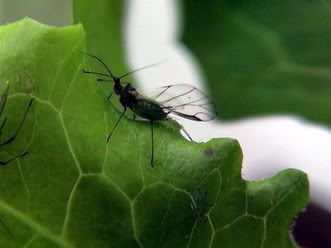
If you spot bigger insects on your plants, it is easy enough to pick them off. You can wear gloves if you don't fancy touching the bugs and drop them into a container soapy water. Morning or evening is usually the best time to find the most insects on the plants.
There are some plants which repel insects naturally. It might be a good idea to plant these amongst your other plants. Examples of plants repugnant to insects are garlic, onion and marigolds. There are also insects which eat other insects instead of your plants. Praying mantis and ladybugs can be used to effectively control garden insects. They can be bought in egg sacs or live from many garden stores. You just need to release them into the garden and they will find aphids or similar food and happily live off them.
It is possible to make physical barriers in some cases. For example, if you cut the top and bottom from a can or jar, and push the container into the soil around fragile young plants, this will keep cutworms away. You can sprinkle diatomaceous earth around plants if slugs are a problem since slug pellets contain chemicals which we are trying to avoid. You can protect your produce from grasshoppers using fine netting. As an organic gardener, you will discover new creative ways to control insects in your garden if they are pests rather than resort to spraying toxic chemicals around.
By Lee Dobbins













